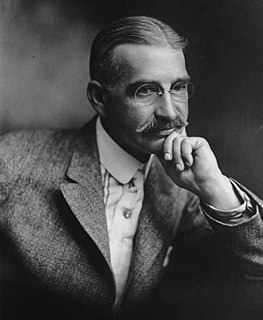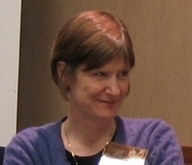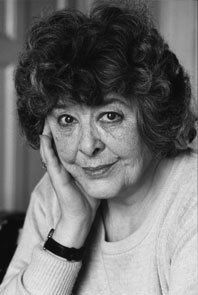A Quote by L. Frank Baum
Dorothy said nothing. Oz had not kept the promise he made her, but he had done his best. So she forgave him. As he said, he was a good man, even if he was a bad Wizard.
Related Quotes
And you're not leaving," she said. "Promise me." It was as if she had asked him to promise to keep breathing, to notice sunshine, to permit the spinning of the earth. What choice did he have? Even if he left her, she would be camped in his heart, an insistent and willful presence. She would match her strides to his on any journey he ever took; she would lie beside him on any bed. Amalie, he said, "that's the easiest promise I've ever had to make.
She had time to make room for him in her closet. The cat had time to get used to him. They had all the time they needed, because he'd told her he was hers, and he was a man of his word. "I've got all I need," she told him. He leaned down and kissed her again, then stroked a finger over her temple, tucking a loose strand of hair behind her ear. "I want you to know," he said. "That you're the best choice I ever made." "No regrets?" "No regrets.
He put the box in Kahlan's lap. As she picked it up, she gave him the biggest smile he had ever seen. Before he even knew what he had done, he had leaned over and given Kahlan a quick kiss. Her eyes went wide, and she didn't kiss him back, but the feel of her lips shocked him into realizing what he had done. Oh. Sorry," he said. She laughed. "Forgiven.
Mom said, "His spirit is there," and that made me really angry. I told her, "Dad didn't have a spirit! He had cells!" "His memory is there." "His memory is here," I said, pointing at my head. "Dad had a spirit," she said, like she was rewinding a bit in our conversation. I told her, "He had cells, and now they're on rooftops, and in the river, and in the lungs of millions of people around New York, who breathe him every time they speak!
"Death," said Akiva. His life was leaving him fast now that he no longer held his wound. His eyes just wanted to drift closed. "I'm ready." "Well, I'm not. I hear it's dull, being dead." She said it lightly, amused, and he peered up at her. Had she just made a joke? She smiled. Smiled. He did, too. Amazed, he felt it happening, as if her smile had triggered a reflex in him. "Dull sounds nice," he said, letting his eyes flutter closed. "Maybe I can catch up on my reading."
Marriage I think For women Is the best of opiates. It kills the thoughts That think about the thoughts, It is the best of opiates. So said Maria. But too long in solitude she'd dwelt, And too long her thoughts had felt Their strength. So when the man drew near, Out popped her thoughts and covered him with fear. Poor Maria! Better that she had kept her thoughts on a chain, For now she's alone again and all in pain; She sighs for the man that went and the thoughts that stay To trouble her dreams by night and her dreams by day.
I had dinner with Marlene Dietrich in the early 1970s. I went to pick her up and she had someone with her, a dreadful man. He was writing a book about her, and he said to her, 'You're so cold when you perform,' and she said, 'You didn't listen to the voice.' She said the difficulty was to place the voice with the face.
Yes. I was looking for Lettie. They were both very kind to me,” Percival said, “Even though they’d never seen me before. And Wizard Howl kept visiting to court Lettie. Lettie didn’t want him, and she asked me to bite him to get rid of him, until Howl suddenly began asking her about you and—“ “what?” he said, “ I know someone called sophie who looks a little like you.. And Lettie said, that’s my sister,’ without thinking,” Percival said. “ And she got terribly worried then, particularly as Howl went on asking about her sister.
There's something very lazy about the way you have loved him blindly for so long without ever criticizing him. You've never even accepted that the man is ugly,' Kainene said. There was a small smile on her face and then she was laughing, and Olanna could not help but laugh too, because it was not what she had wanted to hear and because hearing it had made her feel better.
The world taught women nothing skillful and then said her work was valueless. It permitted her no opinions and said she did not know how to think. It forbade her to speak in public and said the sex had no orators. It denied her the schools, and said the sex had no genius. It robbed her of every vestige of responsibility, and then called her weak. It taught her that every pleasure must come as a favor from men and when, to gain it, she decked herself in paint and fine feathers, as she had been taught to do, it called her vain.
"She (Minnie Ruth Solomon) was unusual because even though I knew her family was as poor as ours, nothing she said or did seemed touched by that. Or by prejudice. Or by anything the world said or did. It was as if she had something inside her that somehow made all that not count. I fell in love with her some the first time we ever talked, and a little bit more every time after that until I thought I couldn't love her more than I did. And when I felt that way, I asked her to marry me . . . and she said she would."
And he absolutely had to find her at once to tell her that he adored her, but the large audience before him separated him from the door, and the notes reaching him through a succession of hands said that she was not available; that she was inaugurating a fire; that she had married an american businessman; that she had become a character in a novel; that she was dead.
She didn’t understand why it was happening,” he said. “I had to tell her she would die. Her social worker said I had to tell her. I had to tell her she would die, so I told her she was going to heaven. She asked if I would be there, and I said that I would not, not yet. But eventually, she said, and I promised that yes, of course, very soon. And I told her that in the meantime we had great family up there that would take care of her. And she asked me when I would be there, and I told her soon. Twenty-two years ago.
Why was she always so craven, so apologetic? He had always seen Ruth as separate, good and untainted. As a child, his parents had appeared to him as starkly black and white, the one bad and frightening, the other good and kind. Yet as he had grown older, he kept coming up hard in his mind against Ruth's willing blindness, to her constant apologia for his father, to the unshakeable allegiance to her false idol.

































